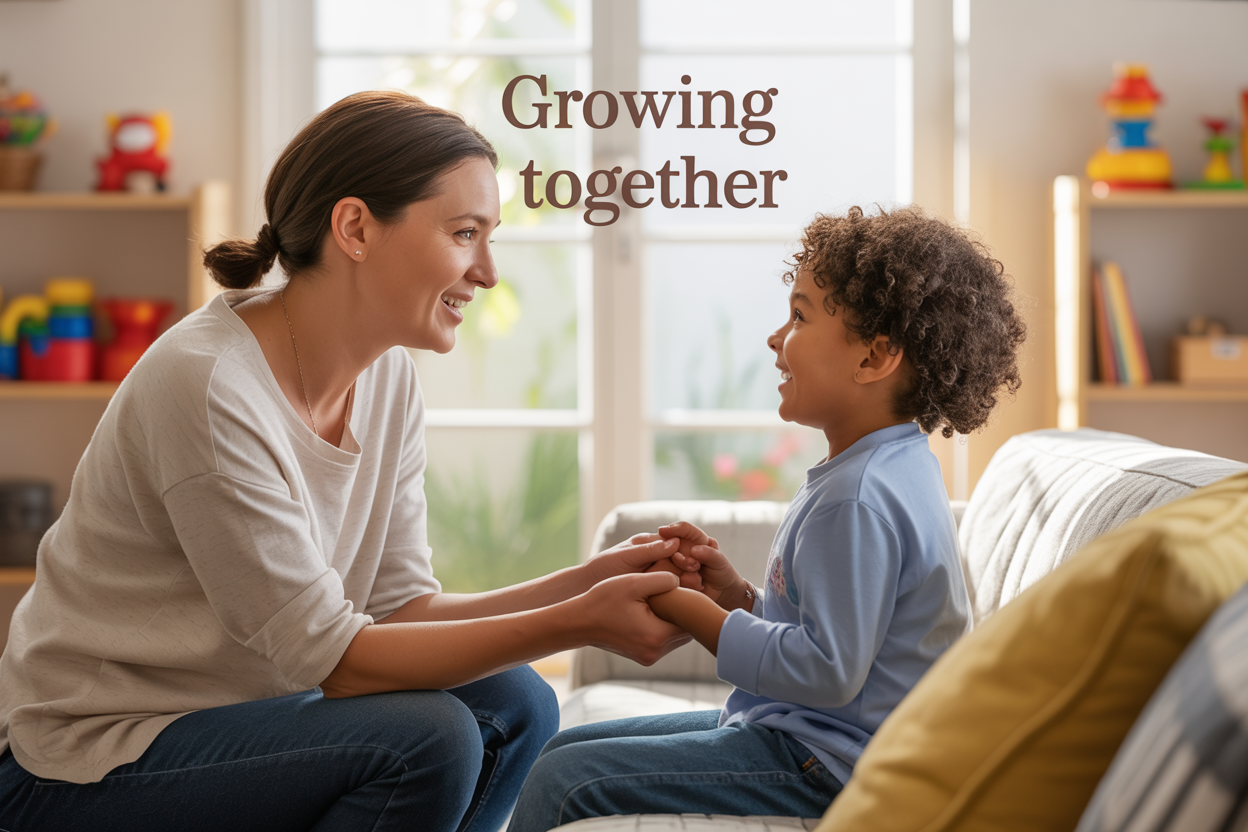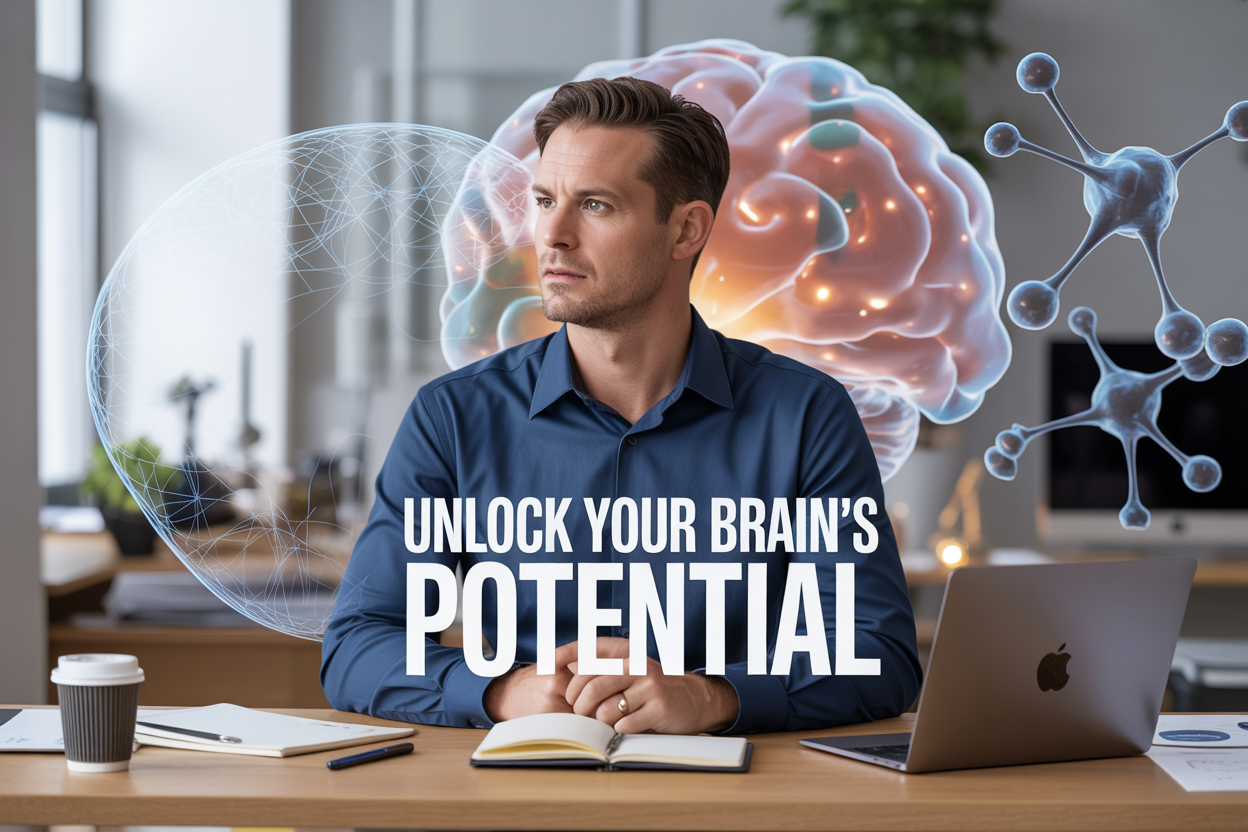Most people think karma is just mystical mumbo jumbo, but there’s real karma science backing up what ancient wisdom has taught for thousands of years. This guide is for anyone curious about how their actions actually create ripple effects in their daily life—from skeptics wanting hard evidence to believers seeking deeper understanding.
You’ll discover the psychology of giving and why your brain literally rewards generous behavior. We’ll dive into behavioral consequences research that shows how positive actions effects create measurable changes in your relationships, health, and opportunities. Plus, you’ll learn practical positive energy strategies that tap into reciprocity psychology to improve your social connections and personal outcomes.
Ready to see what goes around comes around science in action? Let’s explore how the choices you make today shape the life you get tomorrow.
Understanding the Psychology of Giving and Receiving

How Your Brain Responds When You Help Others
When you help someone, your brain literally lights up like a Christmas tree. Neuroscientists have discovered that acts of kindness activate the same reward pathways that respond to food, sex, and other pleasurable experiences. The posterior superior temporal sulcus and the temporoparietal junction – fancy names for areas in your brain – become incredibly active when you’re being generous.
Brain scans show that giving triggers activity in the mesolimbic pathway, which releases those feel-good chemicals we all crave. This isn’t just wishful thinking or spiritual mumbo-jumbo – it’s measurable science. The psychology of giving reveals that your brain actually rewards you for helping others, creating a biological incentive for generous behavior.
What’s really fascinating is that even thinking about helping someone can spark neural activity. Your prefrontal cortex, the area responsible for planning and decision-making, becomes engaged when you contemplate acts of kindness. This suggests that karma science isn’t just about actions – it starts with intention.
The Neurochemical Rewards of Generous Behavior
Your body produces a cocktail of powerful chemicals when you engage in generous behavior. Dopamine floods your system, creating that warm, fuzzy feeling often called a “helper’s high.” This natural high can last for hours and creates positive associations with giving.
Serotonin levels also spike during acts of kindness, improving your mood and overall sense of well-being. Meanwhile, oxytocin – the “bonding hormone” – strengthens your connections with others and reduces stress. These neurochemical rewards explain how karma works on a biological level.
| Chemical | Effect | Duration |
|---|---|---|
| Dopamine | Pleasure and motivation | 2-4 hours |
| Serotonin | Mood enhancement | 4-8 hours |
| Oxytocin | Social bonding | 6-12 hours |
| Endorphins | Natural pain relief | 2-6 hours |
Research shows that people who volunteer regularly have lower levels of cortisol, the stress hormone that wreaks havoc on your immune system. Regular givers also show increased activity in the vagus nerve, which controls heart rate and promotes feelings of compassion. These positive actions effects create a biological foundation for the age-old principle that what goes around comes around.
Why Humans Are Wired for Reciprocity
Evolution shaped us to be reciprocal creatures. Reciprocity psychology reveals that our ancestors who helped others and returned favors were more likely to survive and pass on their genes. This created an evolutionary advantage for cooperative behavior that’s still hardwired into our brains today.
The reciprocity instinct operates on multiple levels:
- Immediate reciprocity: Direct exchange between two people
- Generalized reciprocity: Helping others based on past help received
- Reputational reciprocity: Building social standing through generous acts
Your brain contains specialized neural networks dedicated to tracking social debts and favors. The anterior cingulate cortex monitors fairness and reciprocity, while the temporoparietal junction helps you understand others’ intentions. This mental accounting system explains why breaking reciprocity norms feels so uncomfortable.
Mirror neurons play a crucial role in this process. These specialized brain cells fire both when you perform an action and when you observe others performing the same action. They create an automatic empathy response that makes you feel good when others feel good – a biological basis for the golden rule.
Studies in behavioral economics show that humans have a strong bias toward reciprocity, even when it’s not in their immediate self-interest. This reciprocity psychology forms the foundation of trust, cooperation, and social cohesion that makes civilization possible. Your brain literally rewards you for maintaining these social bonds, creating a neurological explanation for why generous behavior tends to come back to you in unexpected ways.
The Measurable Effects of Positive Actions on Your Life
How Acts of Kindness Boost Your Physical Health
Your body literally rewards you for being kind to others. Research shows that performing acts of kindness triggers the release of oxytocin, often called the “love hormone,” which reduces inflammation and lowers blood pressure. A study published in the journal Psychosomatic Medicine found that volunteers who helped others experienced lower stress-related mortality rates compared to those who focused solely on receiving help.
The positive actions effects extend beyond hormonal changes. People who regularly engage in charitable activities show improved cardiovascular health, with heart rates averaging 5-10 beats per minute lower during stressful situations. The University of Michigan’s longitudinal study tracking over 400 couples for five years revealed that those who helped friends, neighbors, and spouses lived longer than their less generous counterparts.
Your immune system also gets a boost from generous behavior. Scientists have documented increased production of immunoglobulin A, an antibody that fights off infections, in people who volunteer regularly. This “helper’s high” isn’t just psychological – it’s a measurable physiological response that strengthens your body’s natural defenses.
The Mental Health Benefits of Giving Back
Giving back creates powerful changes in your brain chemistry that rival prescription antidepressants. When you help others, your brain releases dopamine, serotonin, and endorphins – the same neurochemicals targeted by mood-enhancing medications. This natural cocktail of feel-good chemicals can reduce symptoms of depression and anxiety by up to 40% according to behavioral consequences research.
The psychology of giving reveals that generous acts activate the brain’s reward center more intensely than receiving gifts. fMRI scans show heightened activity in the mesolimbic pathway when people donate to charity, creating lasting positive memories that reinforce the behavior. This neurological response explains why many people describe volunteer work as “addictive” – your brain literally craves more opportunities to help.
Regular giving also builds resilience against mental health challenges. People who engage in altruistic behavior show increased gray matter in areas associated with emotional regulation and stress management. A Harvard study following participants for two years found that those who volunteered at least two hours weekly reported 30% lower rates of depression and significantly improved overall life satisfaction.
Strengthening Social Connections Through Generous Acts
Generous behavior creates a ripple effect that strengthens your entire social network. When you help others, you’re not just building one relationship – you’re establishing yourself as someone others can trust and rely on. Social scientists have identified this as the “reputation dividend,” where your acts of kindness become known throughout your community, attracting like-minded people into your circle.
The karma science behind social bonding shows that shared positive experiences create stronger neural pathways between people. When you volunteer alongside others or help someone in need, your brains synchronize through a process called “neural coupling.” This biological phenomenon explains why people often form lasting friendships through volunteer work or community service projects.
Your generous acts also activate the reciprocity psychology principle in ways that expand far beyond the initial recipient. Studies tracking social networks show that kindness spreads up to three degrees of separation – meaning your good deed influences not just the person you helped, but their friends and their friends’ friends. This multiplication effect creates a web of positive connections that often circles back to benefit you in unexpected ways.
Research from the University of Pennsylvania demonstrates that people who engage in regular acts of service report having 23% more close friendships and stronger family relationships compared to those focused primarily on personal achievements.
Improved Self-Esteem from Making a Difference
Making a positive impact on others’ lives fundamentally changes how you see yourself. The positive energy strategies that emerge from helping others create a feedback loop of increased self-worth and confidence. When you witness the direct results of your actions – whether it’s a smile from someone you’ve helped or seeing a community project succeed – your brain reinforces your identity as someone who matters and can create change.
This boost in self-esteem operates through what psychologists call “moral elevation.” When you act generously, you experience a sense of pride and accomplishment that’s distinct from personal achievements. Unlike competitive success, which can leave you worried about maintaining your position, the self-esteem from helping others is sustainable and grows stronger with repetition.
Studies show that people who regularly volunteer score 25% higher on self-efficacy measures compared to non-volunteers. They report feeling more capable of handling life’s challenges and more confident in their ability to solve problems. This confidence stems from repeatedly seeing evidence that their actions create positive outcomes in the world.
The impact becomes even more pronounced when people engage in skilled volunteering that uses their unique talents. Teachers who tutor struggling students, accountants who help with tax preparation for low-income families, or carpenters who build homes for charity report the highest levels of self-esteem and life satisfaction, as they see their specific skills making a measurable difference in others’ lives.
Scientific Evidence Behind Behavioral Consequences
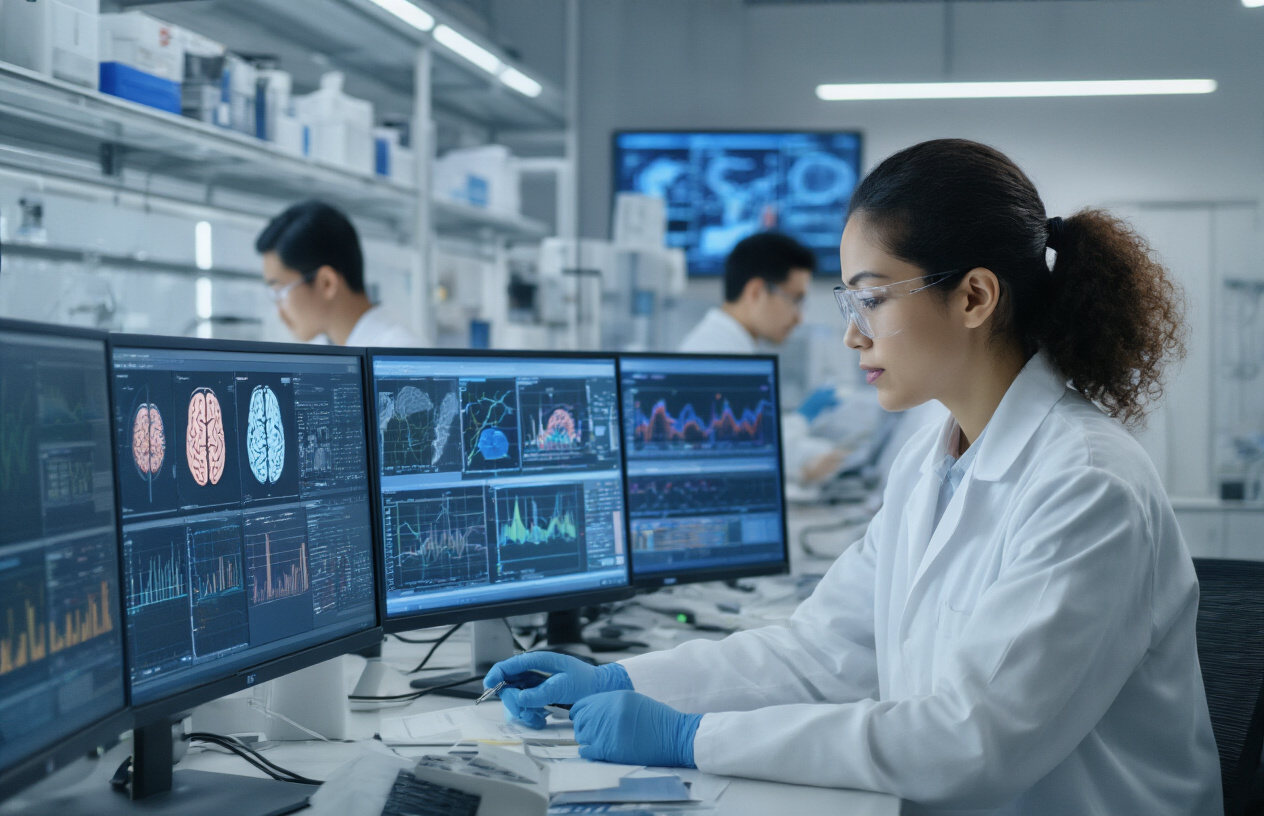
Research Studies on Prosocial Behavior and Life Outcomes
Multiple longitudinal studies reveal fascinating connections between how karma works and measurable life outcomes. The Harvard Study of Adult Development, spanning over 80 years, found that people who regularly helped others lived longer and reported higher life satisfaction compared to those focused solely on personal gain.
A landmark University of Michigan study tracked 423 elderly couples for five years, discovering that those who provided support to friends, relatives, and neighbors reduced their risk of dying by 60%. The behavioral consequences research consistently shows that prosocial actions create a biological response – releasing oxytocin and endorphins while reducing cortisol levels.
Professor Elizabeth Dunn’s experiments at the University of British Columbia demonstrated that people who spent money on others experienced greater happiness than those who spent on themselves. This karma science principle held true across cultures, from Canada to Uganda, suggesting universal patterns in human behavior.
Brain imaging studies using fMRI technology show that giving activates the same reward centers triggered by food and sex. When participants donated to charity, their brains lit up in areas associated with pleasure, trust, and social connection. This neurological evidence supports the psychology of giving as deeply embedded in our biology.
The Ripple Effect of Your Actions on Others
Your positive actions create expanding circles of influence that extend far beyond your immediate awareness. Network scientists have mapped how kindness spreads through social connections, finding that generous behavior influences people up to three degrees of separation away.
When you help someone, they become 125% more likely to help another person within the next 24 hours. That second person then becomes 75% more likely to help a third person, and so on. This mathematical progression shows how positive energy strategies multiply exponentially through communities.
Research by James Fowler and Nicholas Christakis revealed that happiness spreads through social networks like an emotional contagion. One person’s positive actions can influence up to 1,000 people in their extended network. The reciprocity psychology at work creates self-reinforcing loops where kindness begets more kindness.
Digital age studies track this phenomenon through social media platforms. Posts about volunteering or charitable giving receive 50% more engagement and inspire similar actions among viewers. The what goes around comes around science principle operates faster and reaches further than ever before through technological amplification.
How Negative Behaviors Create Self-Perpetuating Cycles
Destructive patterns follow the same network rules as positive ones, but with harmful consequences. Research shows that aggressive behavior spreads through communities, creating zones of hostility and mistrust that can persist for generations.
Studies on workplace bullying reveal how toxic behavior cascades downward through organizational hierarchies. One abusive manager can create a culture of fear affecting dozens of employees, who then carry that stress home to their families. The behavioral consequences research demonstrates how negativity compounds faster than positivity.
Neuroscience explains why negative cycles prove so persistent. Chronic stress from hostile environments literally rewires the brain, making people more reactive and less empathetic. This creates what psychologists call “trauma responses” – automatic reactions that perpetuate conflict even when the original threat has passed.
Breaking these cycles requires conscious intervention. Communities that implement restorative justice programs see 40% reductions in repeat offenses compared to punitive approaches. The key lies in interrupting the automatic responses and providing new pathways for positive interaction, essentially rewiring the social and neurological patterns that maintain destructive behaviors.
The Social Networks That Amplify Your Actions

How Your Reputation Influences Future Opportunities
Your reputation acts like a shadow that precedes you into every room. When you consistently demonstrate positive actions, people remember. They talk about your reliability, your kindness, and your integrity. This creates what researchers call “reputational capital” – an invisible currency that opens doors you didn’t even know existed.
Think about it: hiring managers often make decisions based on references and word-of-mouth recommendations. Business partnerships form because someone vouched for your character. Social networks amplify karma by creating feedback loops where your positive actions get broadcast to wider circles, generating opportunities that compound over time.
Studies show that individuals with strong positive reputations receive 23% more job offers and earn 15% higher salaries compared to their peers with neutral reputations. Your past behaviors become predictors of future success, creating a self-reinforcing cycle where good actions lead to better opportunities, which enable even more positive impact.
The Power of Word-of-Mouth in Personal and Professional Success
Word-of-mouth remains the most trusted form of recommendation, with 92% of people trusting referrals from people they know. When you help others, solve problems, or go above and beyond expectations, you create memorable moments that people naturally want to share.
These stories spread through social networks, creating what scientists call “prosocial contagion.” Your positive actions don’t just benefit the immediate recipient – they inspire others to act similarly while simultaneously building your reputation as someone worth knowing and working with.
Professional success often hinges on these invisible networks. That colleague you helped with a project three years ago might now be in a position to recommend you for your dream job. The client you went out of your way to support could become your biggest advocate. Word-of-mouth marketing generates five times more sales than paid advertising because people trust authentic experiences over promotional messages.
Building Trust Through Consistent Positive Behavior
Trust operates like compound interest – small, consistent deposits build substantial value over time. Every interaction where you follow through on commitments, show up authentically, and prioritize others’ wellbeing adds to your trust account with that person and their extended network.
Behavioral consistency signals reliability to others’ brains, which are constantly scanning for patterns to predict future behavior. When your actions align with your words repeatedly, you become someone others feel safe recommending, partnering with, and supporting.
Research reveals that high-trust individuals experience:
- 76% higher engagement in relationships
- 50% higher productivity in work environments
- 40% less stress and burnout
- 74% better conflict resolution outcomes
Building trust requires patience and authenticity. People can sense when kindness is performative versus genuine. Authentic positive behavior creates deeper, more lasting connections that withstand challenges and create mutual benefit over time.
Creating Communities That Support Your Growth
Your positive actions naturally attract like-minded individuals who share similar values and approaches to life. This phenomenon, called “homophily,” means that positive people tend to cluster together, creating supportive communities that amplify everyone’s potential.
These communities become accelerators for personal and professional growth. Members share opportunities, offer support during challenges, provide honest feedback, and celebrate successes together. When you contribute positively to these networks, you tap into collective wisdom and resources far beyond what you could access alone.
The science of social networks reveals that positive behaviors spread up to three degrees of separation. Your kindness doesn’t just influence the person you help – it influences their friends, and their friends’ friends. This creates ripple effects that can circle back to benefit you in unexpected ways, sometimes years later.
Smart community building involves:
- Giving before receiving: Contributing value without immediate expectations
- Connecting others: Introducing people who could benefit from knowing each other
- Sharing knowledge: Teaching skills or insights that help others grow
- Celebrating others: Amplifying others’ successes and achievements
- Being consistent: Showing up regularly and reliably for your community
These communities become your personal advisory board, referral network, and support system rolled into one. They transform individual positive actions into collective momentum that lifts everyone involved.
Practical Strategies to Harness Positive Energy
Daily Habits That Generate Good Will
Building positive energy through daily actions doesn’t require grand gestures. Research in behavioral consequences research shows that small, consistent actions create ripple effects in our social networks. Start your morning by expressing genuine gratitude to someone in your life – text a friend, thank your barista, or acknowledge a colleague’s effort. This simple practice activates the brain’s reward centers and triggers reciprocity psychology in others.
Practice active listening during conversations. Put away devices, make eye contact, and ask follow-up questions. When people feel truly heard, they naturally want to reciprocate positive energy. Keep a daily kindness journal where you record one small act of service you performed, no matter how minor. This trains your brain to actively seek opportunities for positive actions effects.
Smile authentically at strangers, hold doors open, and offer help before being asked. These micro-interactions contribute to your personal karma science profile by creating positive associations with your presence. The psychology of giving activates when you give compliments freely, share useful information, and celebrate others’ successes without expecting recognition.
Identifying Opportunities to Make a Meaningful Impact
Meaningful impact happens when you align your unique skills with genuine needs around you. Start by observing your immediate environment – your workplace, neighborhood, and social circles. Notice recurring problems or challenges that match your abilities. A tech-savvy person might help elderly neighbors with digital tasks, while someone with teaching skills could tutor struggling students.
Look for volunteer opportunities that genuinely excite you rather than obligations you feel you “should” do. When your service aligns with your passions, your energy multiplies naturally. Join local community groups, attend neighborhood meetings, or connect with nonprofits addressing causes you care about.
Create value in your existing relationships by becoming the person others turn to for specific expertise. Whether that’s career advice, home improvement tips, or emotional support, specializing in helping others with your strengths builds powerful positive energy networks. Social networks karma operates most effectively when your contributions feel authentic and sustainable.
Use your professional network strategically for good. Introduce people who could benefit from knowing each other, recommend qualified candidates for job openings, or share opportunities with those who need them. These actions create lasting positive impressions that often circle back unexpectedly.
Balancing Self-Care with Service to Others
Sustainable positive energy requires protecting your own well-being while serving others. Set clear boundaries about when, how, and how much you give. Overextending yourself creates resentment and depletes the very energy you’re trying to share. Schedule your helping activities like important appointments, ensuring they don’t consistently interfere with rest, family time, or personal goals.
Practice the “oxygen mask principle” – take care of your basic needs first so you can serve others from a place of strength rather than depletion. Regular exercise, adequate sleep, and stress management aren’t selfish luxuries; they’re prerequisites for sustained generosity. When you’re physically and emotionally healthy, your positive actions effects are more impactful and genuine.
Learn to say no gracefully to requests that don’t align with your values, energy levels, or available time. Saying no to one person often means saying yes to someone else who needs your specific skills more urgently. Quality trumps quantity in service.
Create systems that make giving easier. Set up automatic donations to causes you support, batch your volunteer time into focused blocks, or develop templates for common ways you help others. These systems reduce decision fatigue and make positive energy strategies more sustainable long-term.
Remember that modeling healthy boundaries and self-care teaches others important lessons about balance. Your sustainable approach to service gives others permission to care for themselves while contributing to their communities.

Giving and receiving creates a powerful cycle that goes way beyond simple good deeds. Science shows us that our positive actions trigger real psychological benefits, strengthen our social connections, and actually change how others respond to us. When you help someone or show kindness, your brain releases feel-good chemicals while building stronger networks of people who want to support you back.
The research is clear: people who consistently give and act positively experience better mental health, stronger relationships, and more opportunities coming their way. Start small today by offering genuine help to someone around you, whether that’s a coworker, neighbor, or even a stranger. Pay attention to how these actions make you feel and watch how they ripple outward through your social circles. Your positive energy becomes a magnet that draws similar energy back to you, creating the very karma you put out into the world.

